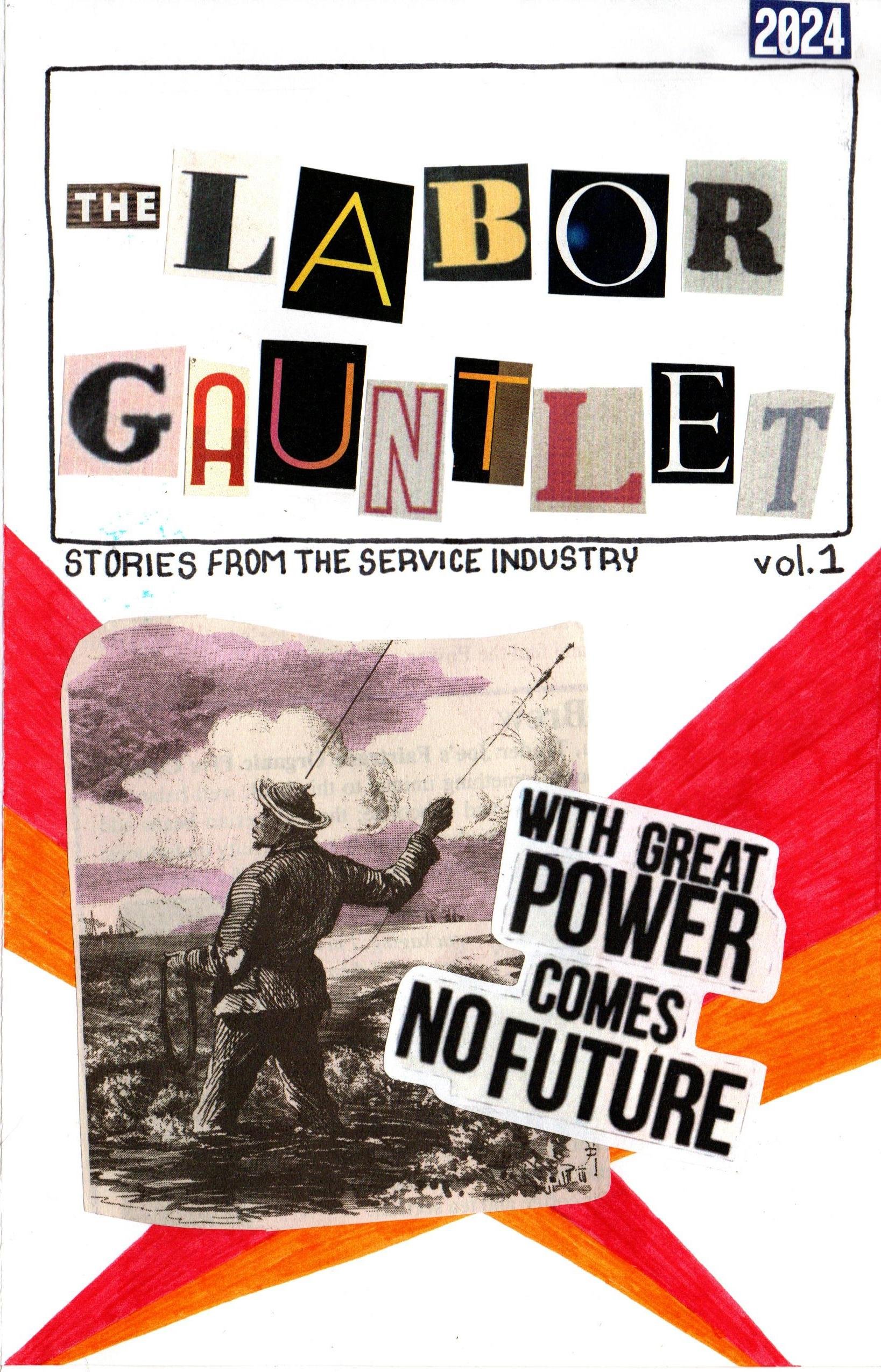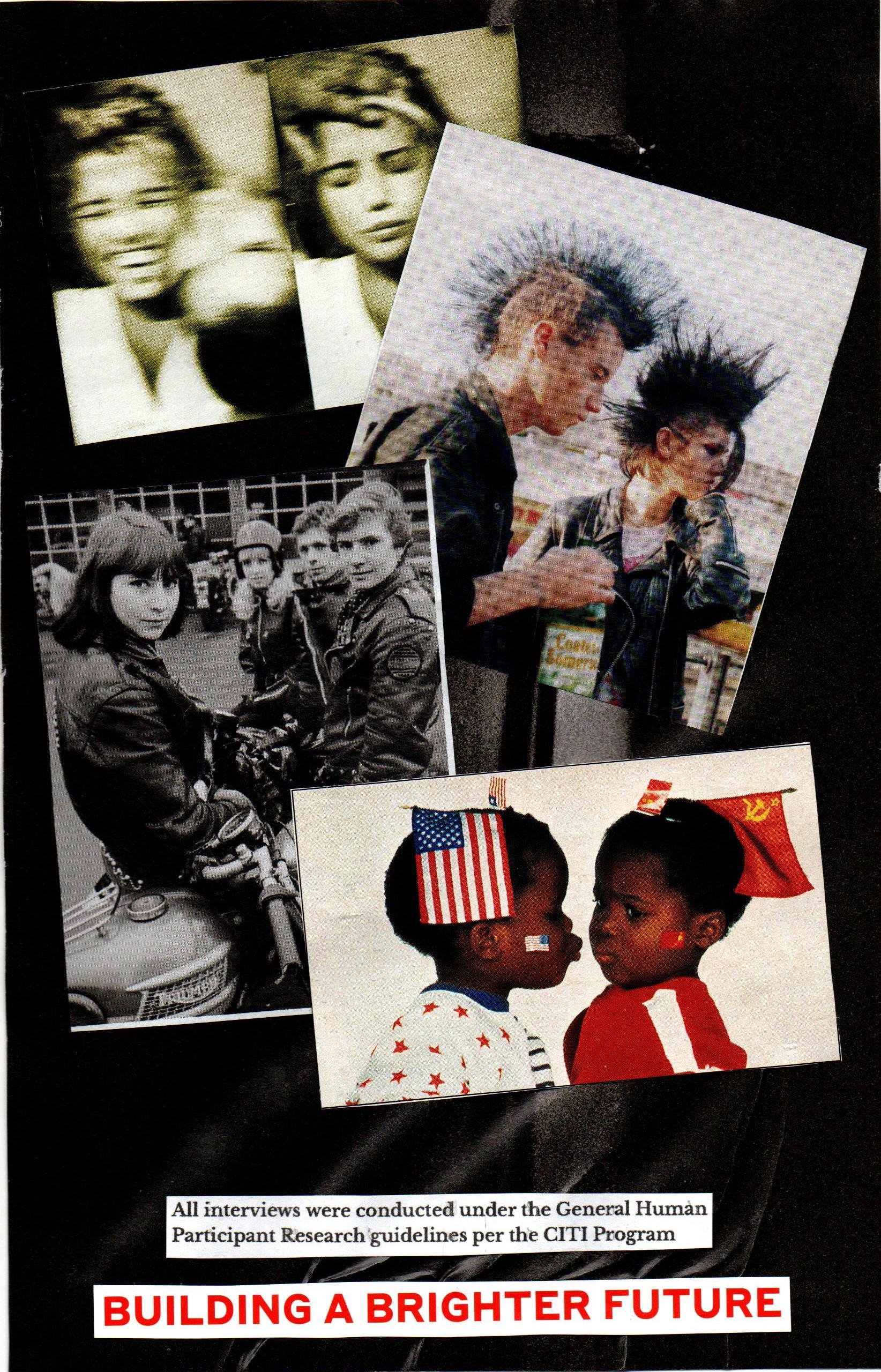The Labor Gauntlet: Stories from the Service Industry, volume 1
The final project in my Writing Studies class this semester was a group project in which we were tasked with creating some form of public writing. This could be a blog, a fleshed out Instagram page, a TikTok series, a zine, etc. My group chose to create a zine highlighting experiences of those who work in the service industry. Now to be clear, digital zines are the norm here in 2024, but we chose to go the more traditional route. The zine we created is entirely physical, made from dozens of magazines (vintage and otherwise), and about seven rolls of double-sided tape. We did type up the actual written portions and created the graphs and pie charts digitally, but those were then printed, cut, and pasted into the zine alongside the images.
Through research, interviewing, and writing a zine/manifesto, we hoped to create a work of community literature that is accessible and easily understood by our focus community.
I acted as the group leader, editor, and designer—I designed and put the zine together while my team took on the task of researching and writing individual sections of the zine itself. I then edited these portions, along with my own sections, and wrote the intro and closing statements. As an anthropology student I am certified through the CITI program to conduct General Human Participant Research, and each person interviewed for our zine signed a consent form as required by the university.



























Purpose: To distribute literature about the current climate of the American service industry workplace including low wages, lack of laws providing adequate breaks for employees, lack of healthcare, lack of overtime pay, and the systemic poverty that is prevalent in communities of service workers and how there are minimal services to help alleviate the burdens that come with working in this industry.
Goals and learning outcomes for students:
Critical Thinking: Analyzing and interpreting the data and stories collected from interviews can enhance critical thinking skills.
Community Engagement: Engaging with local people in the service industry fosters a sense of community involvement and empathy. We can gain insights into the challenges and experiences of individuals working in these professions, which can broaden our perspectives and understanding of societal issues.
Goals and learning outcomes for the public:
Awareness: The zine aims to raise awareness about issues faced by individuals working in the service industry, such as low wages, precarious employment, and workplace conditions. Through engaging with the zine, the public can become more informed about these issues and their impact on communities.
Empathy and Understanding: By sharing stories and perspectives from those in the industry, the zine can foster empathy and understanding among the public. Readers will be exposed to the lived experiences of service industry workers and develop a greater appreciation for their contributions.
Call to Action: The zine may inspire readers to take action, whether it's advocating for better working conditions, supporting local businesses that prioritize fair treatment of employees, or engaging in activism aimed at addressing systemic issues within the service industry.
Dialogue and Reflection: Through thought-provoking art, images, and data, the zine can spark dialogue and reflection within the community. It can provide readers with the opportunity to discuss the topics presented in the zine, share their own perspectives and experiences, and look toward solutions.
What is our ethos? Empowerment and Visibility